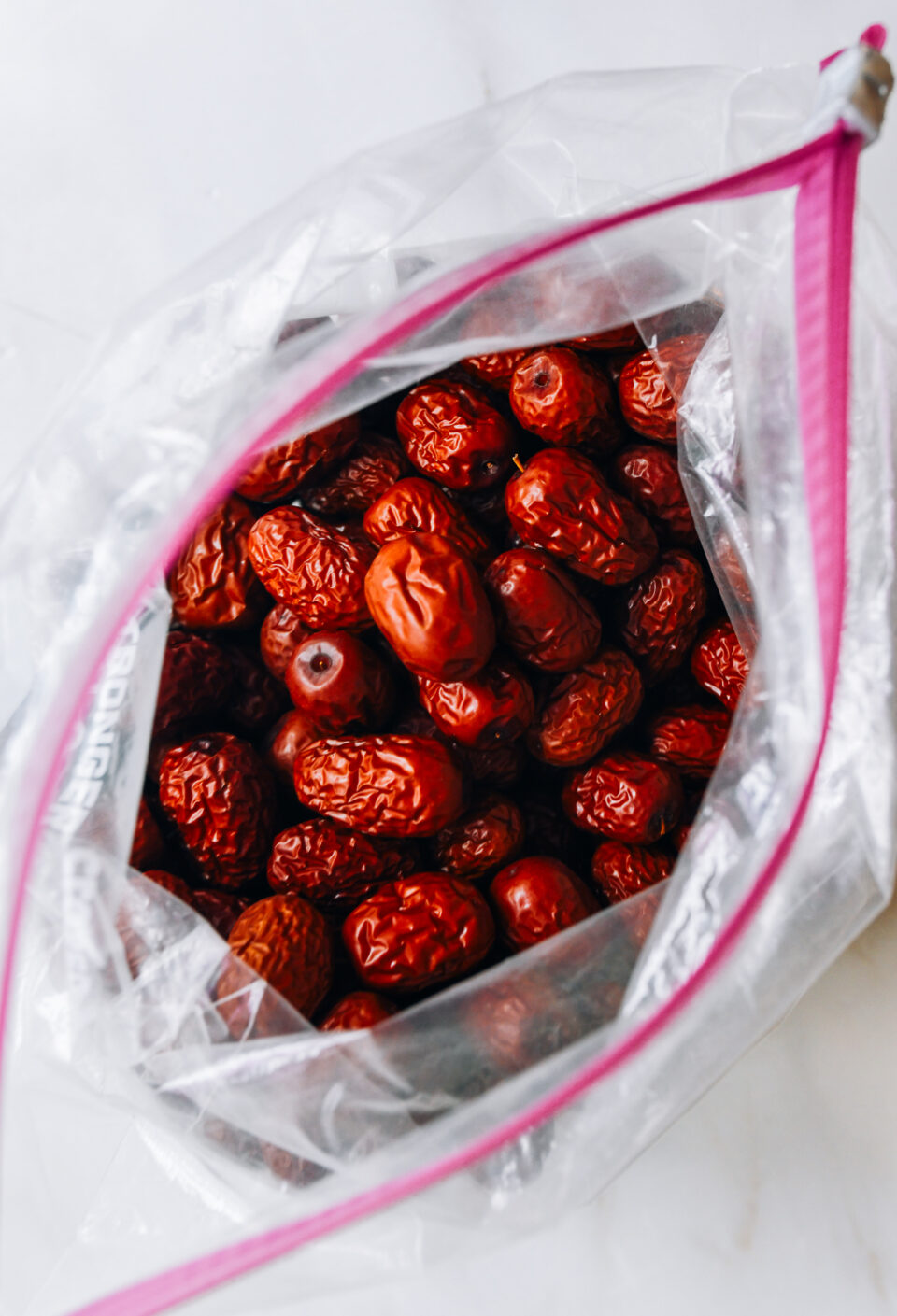The fruits of dry Jujubus, also known as Chinese dates or red dates (Hóng Zǎo – 红枣), are a key ingredient in many Chinese recipes. They are appreciated both for their culinary versatility and for medicinal properties.
Learn everything you need to know about these Jujubri desserts and nutrients, from their aromatic profile and beneficial to the health of cooking applications and conservation tips. That you are preparing a nourishing soup, a slightly sweet dessert or medicinal tea, this complete guide will show you how to use them in your kitchen!
What are Jujubes?
Jujubes (pronounced “Joo-Joo-Bes”), also known as Chinese red dates, are small red fruits that grow on deciduous shrubs or small native trees of southern Asia.
When they are fresh, they are crunchy like an apple, with a sweet and sweet flavor. (Pay attention to the pit in the middle!) However, they are more commonly used in their dried shape in Chinese cuisine, having developed a rubbery consistency and a deep sweetness, similar to the caramel reminiscent of the dates.
Sometimes, the well -stocked Chinese markets carry fresh jaube fruit when in the season, between the end of summer at the beginning of autumn. The color of fresh fruit ranges from green to a mix of green and reddish brown.


They become red as they ripe on the tree. Once matured and dried, the skin on the fruit is intense red, shiny and wrinkled.
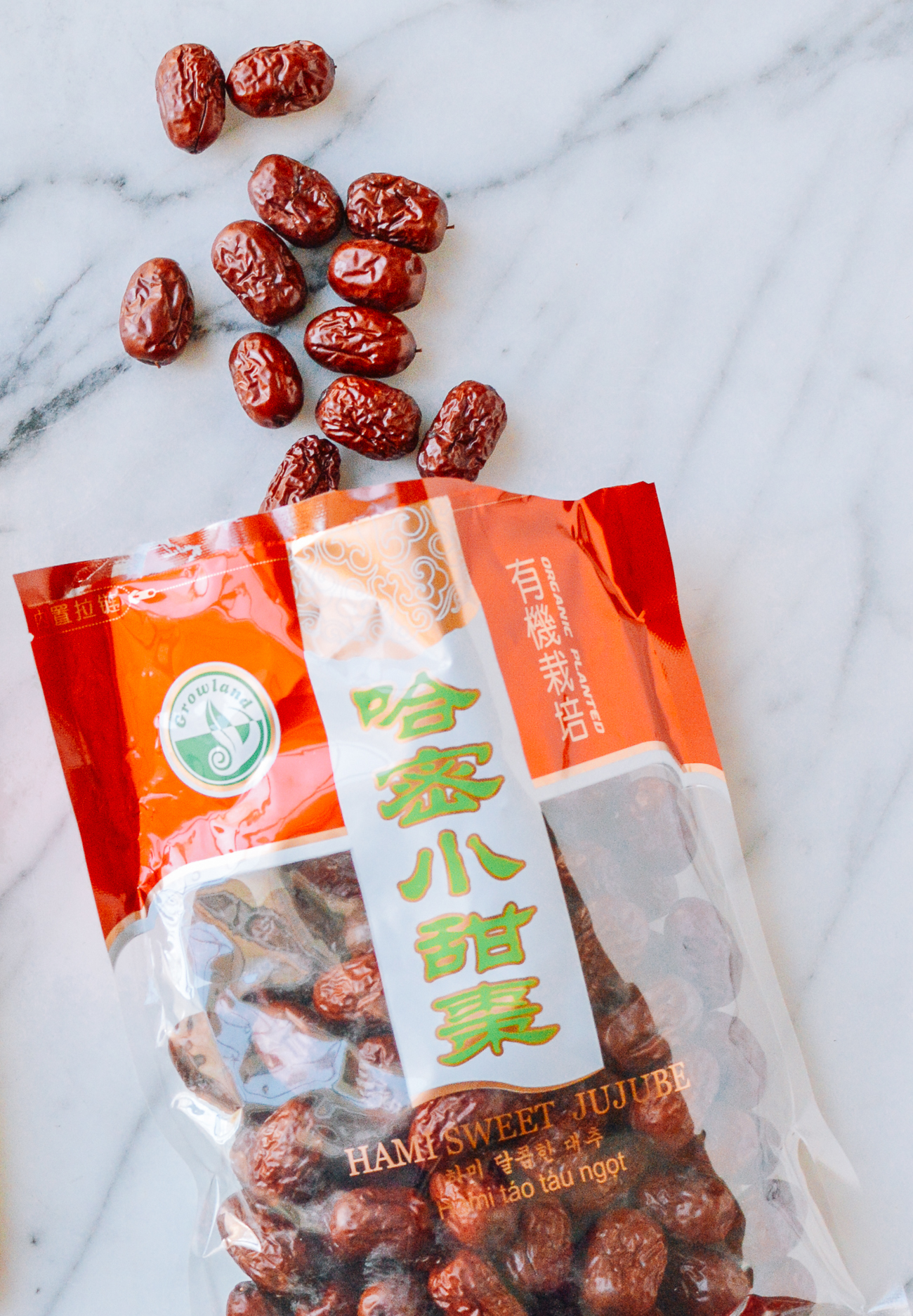
At this stage, they have a very long duration in a sealed container stored in a cool and dry place, up to 1 year or perhaps even a few years if stored in a bag sealed under vacuum in the refrigerator.
Do not confuse them with the Mediterranean dates that are more commonly known to Westerners. Although similar in appearance when drying, Chinese red dates and Mediterranean dates come from completely different plant families. Chinese dates are not so fleshy or equally sweet.
The dried Chinese red dates have:
- A slightly sweet and fruity flavor with caramel and apple notes
- A rubbery and a little dense consistency (softer when rehydrated)
- A mild and pleasant aroma
Health benefits
Chinese red dates have been used in traditional Chinese medicine for thousands of years. Are considered heating in nature and is believed that:
- Reflect the blood and improve circulation, making them particularly useful for women after menstruation or childbirth (see our collection of postpartum recovery recipes)
- Increases energy and fatigue combat
- Support digestive health
- Calm the mind and improves sleep
You can add them to the tea and daily soups for energy support without caffeine and consume during the colder months for the heating effects. They are also a good source of iron and rich in antioxidants. Jujube is known as “Natural pill of vitamin C“With 5x the content of vitamin C of strawberries and 20 times that of citrus fruits!
There is an old Chinese who says “three dates a day, youth will never age”, which means: eat three dates a day and you will remain young forever!
(Always consult your doctor before using any food for specific therapeutic purposes or long term, in particular for those who on drugs or with chronic health conditions!)
How to use Chinese dates
Okay, let’s talk more about how we use them in the kitchen. For a fruit, Chinese red dates are incredibly versatile in Chinese cuisine and you can prepare them in many different ways.
To prepare the dates, cut in half or open them and remove the pit in the middle.
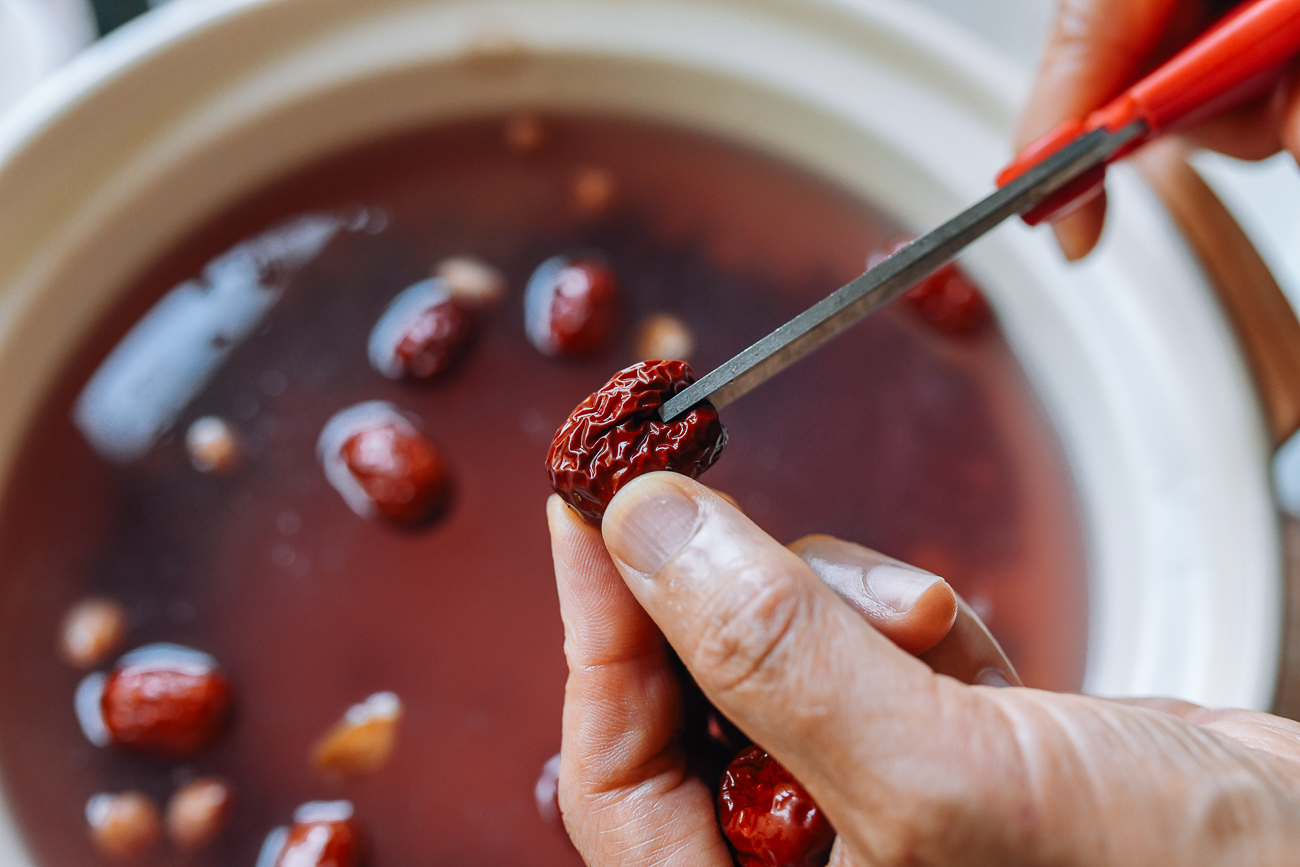
Even if you plan to use them whole, it is a good idea to cut each of them so that the flavor and nutrients can come out.
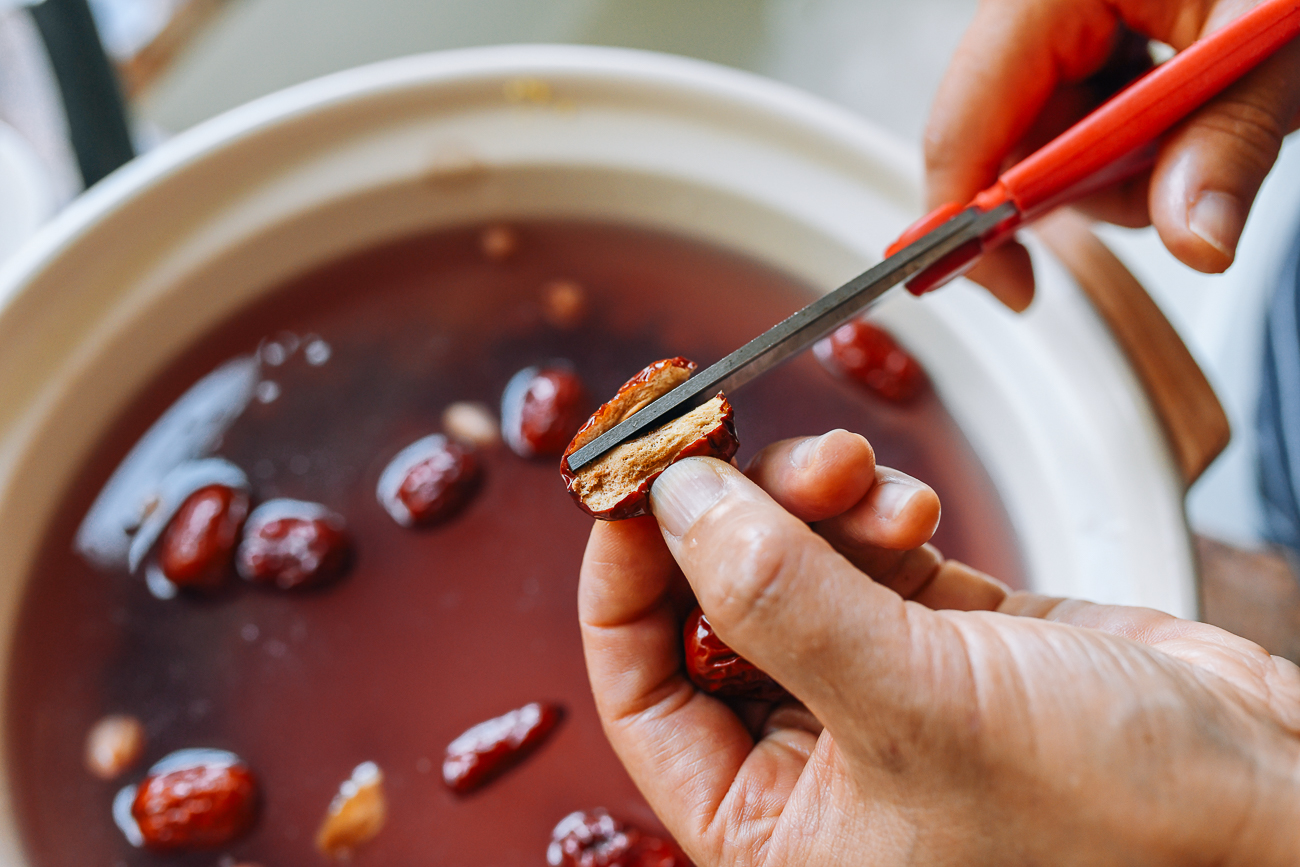
Add them to:
- Sweet soups: A classic use for red dates is in sweet soups such as red bean soup or snow mushroom soup. They combine well with ingredients such as lotus seeds, dry longans and goji berries.
- Porridge: Add the whole or chopped red dates to congenital salted and sweet for natural sweetness and added nutrition. We do it in our Porridge Postpartum. They are also an excellent addition to Porridge Miglio.
- Glutinous rice dessert: Incorporate into Chinese -year -old sticky rice cakes again or eight rice treasures (八宝饭). You will often see the dates as decorative elements at the top. We have a recipe for eight sticky treasures in our cookbook!
- Red appointment tea: Subbolve the whole dates with slices of ginger and/or goji berries for a heating tea and without caffeine. Try our recipe for ginger appointment tea!
- Soup: The dates add a sweetness to the soups with fish, chicken or pork.
- Other desserts: Add the chopped dates to traditional steam cakes for natural sweetness. You can also cook and crush them to be used as a filling of baked goods. The northern Chinese love their Zǎoní pastries (枣泥 枣泥 枣泥 枣泥 枣泥 枣泥 – Red Date) and Mantou (馒头 馒头 馒头 馒头 – steam sandwiches).
- As a natural sweetener: You can use them as a natural sweetener to cook daily by adding them to any dish that needs a little more sweetness! To distribute their flavor in a more uniform way, you can finely cut them!
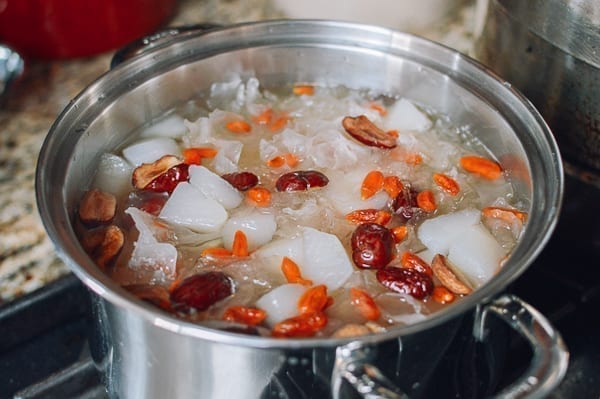

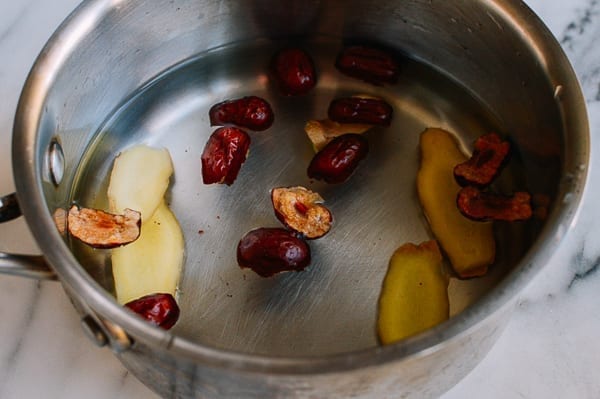
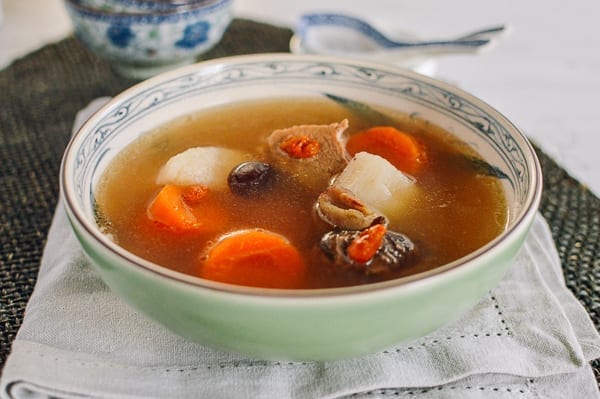
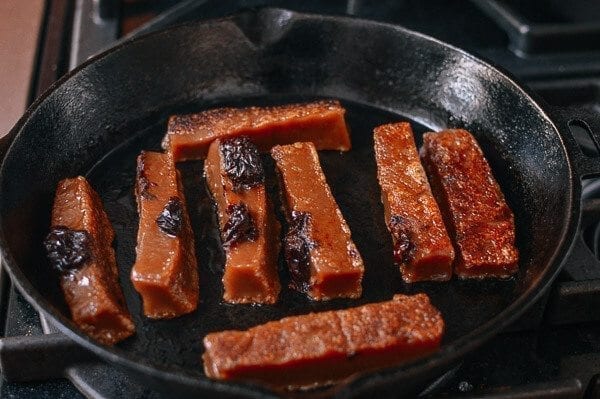
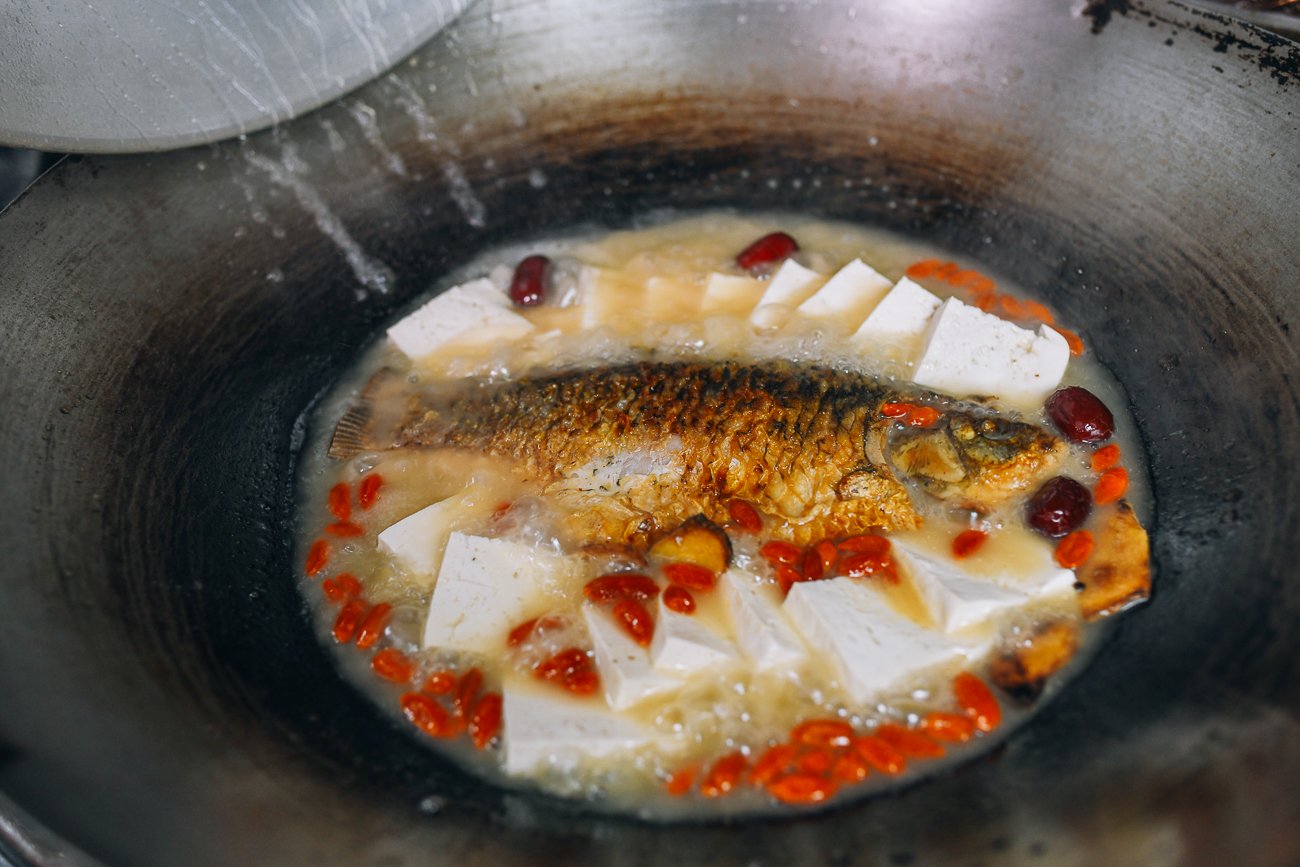
Where to buy
You can find Chinese red dates in most Chinese or Asian food stores, often in the section of dried goods. They are also more and more available in natural and online food stores. Search for plump dates with a vibrant red-brown color without mold. You may also find them or not suitable.
How to store
Keep the dried Chinese red dates in a hermetic container in a cool and dry place for a maximum of one year. For longer conservation, you can keep them in the refrigerator or freezer.
Recipes that use dry Jujubri
Dry Jujubri appear in many of our recipes:
Let us know if you have further questions about the fruit dates of dry Jujubo / from Chinese red dates or your favorite ways to use them!

